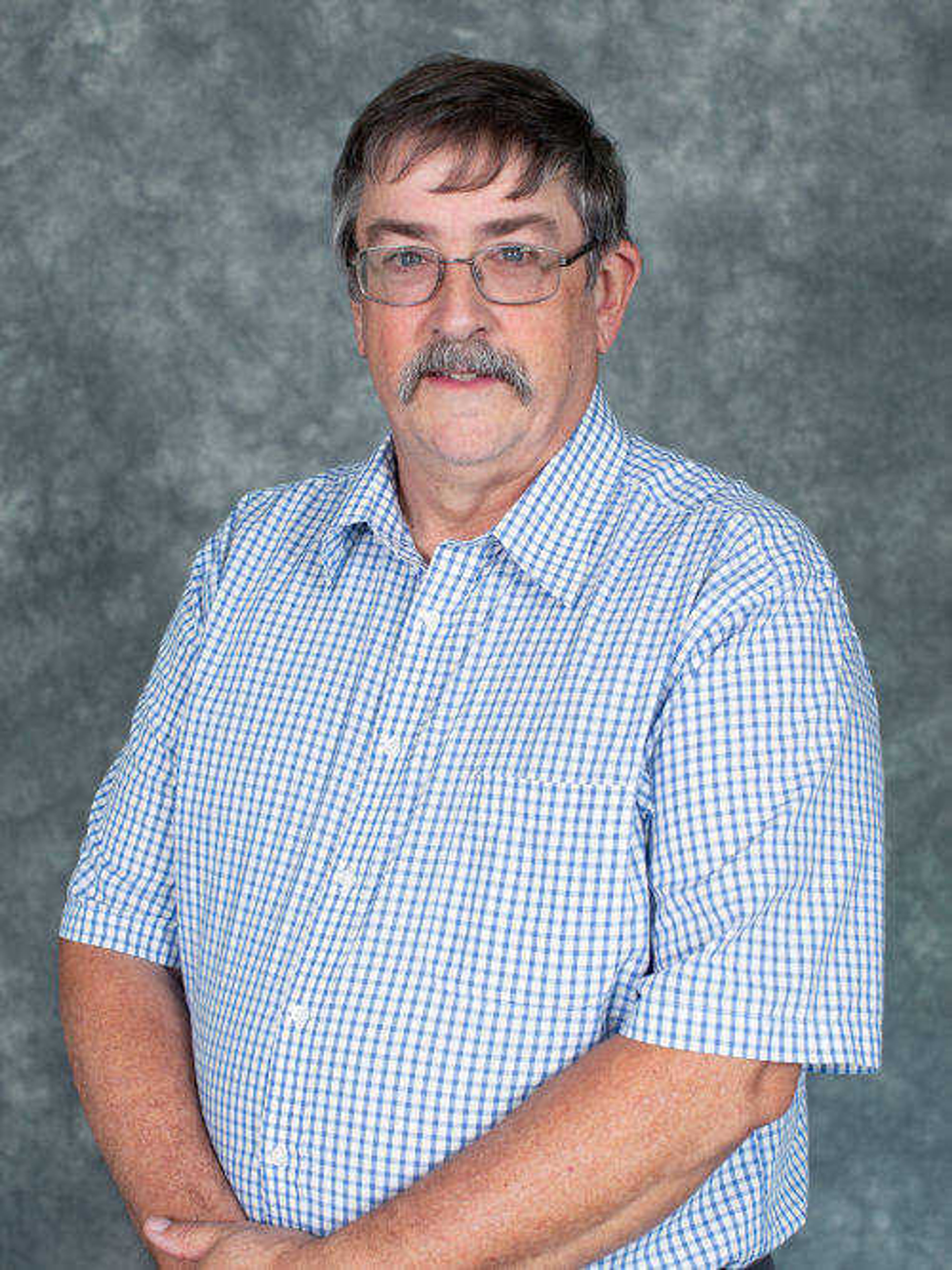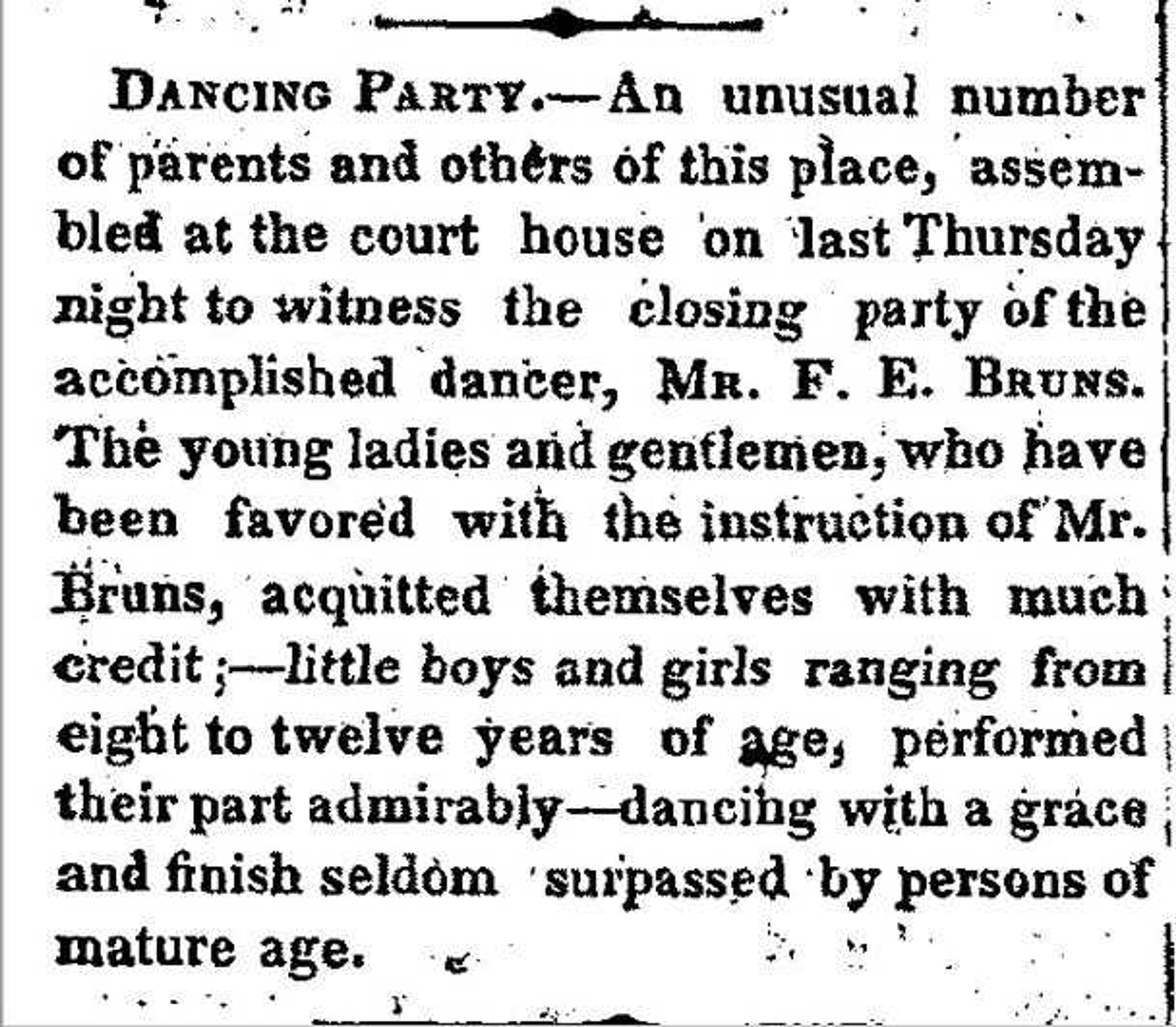Frederick E. Bruns -- dance master in 1850s Cape Girardeau
An advertisement in the Cape Girardeau Western Eagle newspaper in August 1850 includes the following, "FASHIONABLE DANCING AND WALTZING ACADEMY, Mr. Frederick E. Bruns announces that he has opened a Dancing School in the Ball Room in the Tavern of Mr. Penny ... will teach a variety of dances. Apply to Mr. W. Penny."...
An advertisement in the Cape Girardeau Western Eagle newspaper in August 1850 includes the following, "FASHIONABLE DANCING AND WALTZING ACADEMY, Mr. Frederick E. Bruns announces that he has opened a Dancing School in the Ball Room in the Tavern of Mr. Penny ... will teach a variety of dances. Apply to Mr. W. Penny."
We often underestimate the level of society in Cape in that era, and the dance studio was just one example. The upper class in Cape Girardeau lived quite well during antebellum times, was able to import luxury items by steamboat from New Orleans, and had the leisure time to allow their children to learn deportment in proper society, such as taking dance lessons.
The studio shortly attracted a number of children from well-to-do families in town. There are records of at least two recitals, one on Sept. 14, 1850, presumably at the courthouse in Jackson, because the time pre-dates the building of the Common Pleas Courthouse in Cape Girardeau.
The German immigrant, Frederick Bruns, appeared in Cape Girardeau very shortly before he established his dance studio. In fact, the earliest record of him is his marriage to the widow Virginia (Lewis) Whitelaw on Aug. 28, 1850. Virginia was a daughter of early Cape Girardeau settler Nicholas Whitelaw, and had married Thomas Lewis Jr., a prosperous young man who had died after several children were born to the couple. Virginia inherited a large amount of property from Thomas, including money, town lots and slaves.
The marriage notice indicated Bruns was "of New York," although census records place his birth in Germany. There is no further notice of a dance academy after 1850, so the idea apparently did not catch on for very long. The couple presumably lived at least partly on income from Virginia's property, and in 1853 became the parents of twin sons, Frederick and William. The couple also built a brick house in 1853, which may be the same one where Virginia was living near the site of Fort C (old Saint Francis Hospital) in 1866.
Apparently Frederick Sr. developed health problems and wrote his will June 16, 1854. Virginia presented the will for probate on Aug. 13, 1855. Virginia appears in the 1860 census in Cape Girardeau with property valued at $3,000, four Lewis children and the twin sons. A letter she wrote to a sister in 1866 mentions that slaves had left (after emancipation) and soldiers had taken much of her moveable property. Virginia died in 1871, and although she still owned a substantial number of town lots, most of the property was sold to pay debts. Her sons Frederick and William Bruns worked as a stonecutter and laborer, respectively, by 1880. William later moved to St. Louis and was a night watchman at the time of his death in 1930.
This Bruns family is one that fell from prosperity to much-reduced circumstances as an effect of the Civil War. However, for a brief time before that, Frederick Bruns brought culture to Cape Girardeau.
Connect with the Southeast Missourian Newsroom:
For corrections to this story or other insights for the editor, click here. To submit a letter to the editor, click here. To learn about the Southeast Missourian’s AI Policy, click here.










